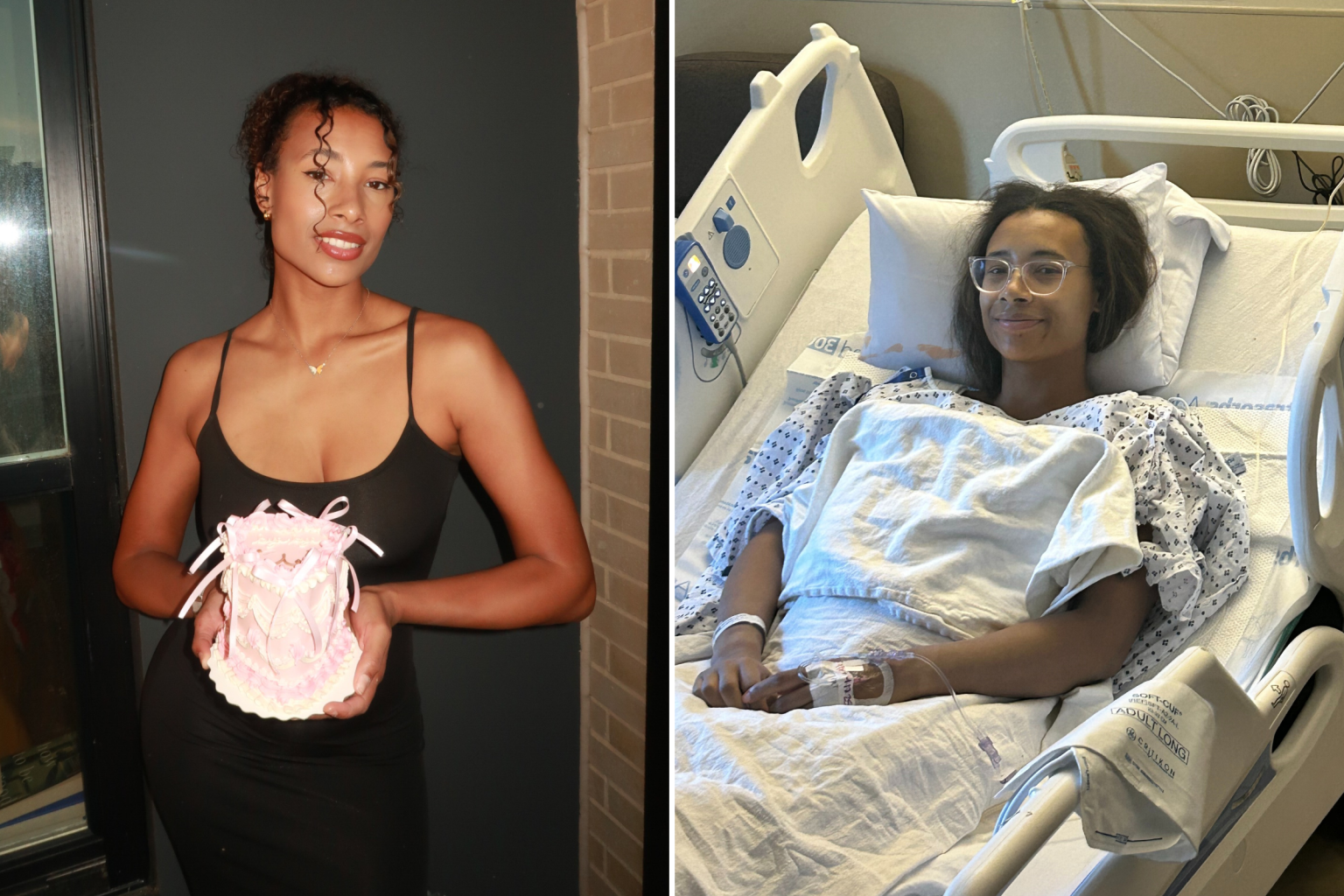Fighting Cancer at 30: Claire Meitinger’s Journey of Advocacy and Hope
When 29-year-old Claire Meitinger first discovered a lump in her right breast in 2023, she never imagined she’d soon be battling cancer in her early thirties. The Richmond, Virginia resident’s concerns were initially dismissed after an ultrasound showed nothing concerning. Medical professionals attributed it to “dense breast tissue” and assured her there was nothing to worry about, especially given her young age and lack of family history with breast cancer. However, Meitinger’s intuition told her something wasn’t right as the lump became increasingly painful. “Leading up to my 30th birthday, the pain only got worse,” she explained. Despite returning for another examination and finally receiving a referral for a mammogram, the imaging once again showed only dense breast tissue. The doctor’s recommendation? Take vitamin E supplements for the pain – a response that would prove to be dangerously inadequate as her condition silently worsened.
By 2024, Meitinger noticed her right breast had become noticeably larger than her left, yet was told repeatedly that everything appeared normal on scans. The turning point came in December 2024 when she discovered a dark spot on her breast – something she instinctively knew was significant. “It felt like confirmation that something was really wrong,” she recalled. Yet even then, medical professionals seemed to dismiss her concerns, with one provider suggesting it was simply eczema and recommending a topical steroid cream. Having lived with eczema since childhood, Meitinger knew this wasn’t the same – the patch wasn’t itchy, flaky, or dry, and it didn’t appear in an area where she typically experienced flare-ups. It looked more like a bruise. Frustrated by continued dismissals, she advocated for herself and insisted on another mammogram, telling doctors, “Just because imaging did not pick up on anything a year ago, did not mean there was nothing wrong. The pain, swelling, and this dark spot had to mean something.”
Her persistence finally led to a breakthrough in January 2025 when a mammogram revealed widespread calcification in her breast – a possible indication of early-stage breast cancer. A subsequent biopsy confirmed the presence of cancerous cells, initially diagnosed as Ductal Carcinoma in Situ (DCIS). This diagnosis was later revised to stage 1 Triple Positive Invasive Ductal Carcinoma (IDC), a form of breast cancer that accounts for approximately 80 percent of all breast cancer diagnoses in women according to The Cleveland Clinic. IDC begins in the cells lining the milk ducts and can spread to surrounding breast tissue, potentially entering the bloodstream or lymphatic system. Common symptoms include changes in breast size or shape, lumps, and alterations in the look or feel of the skin – all signs that Meitinger had been experiencing and reporting for months before receiving a correct diagnosis.
In April 2025, at just 31 years old, Meitinger underwent a bilateral mastectomy to remove all breast tissue, along with reconstruction surgery using temporary implants with plans for permanent ones in the future. Several lymph nodes were also removed from her armpit, which fortunately tested negative for cancer. Her treatment journey continues with 12 rounds of chemotherapy and a year of immunotherapy, plus hormone blockers for at least five years to reduce the risk of recurrence. Despite these challenges, Meitinger remains remarkably positive, reporting that her chemotherapy symptoms have been manageable, and maintaining confidence that she will have “a long and healthy future.” Her attitude reflects both resilience and determination in the face of a diagnosis that came far earlier in life than she ever expected.
Following her diagnosis, Meitinger made the powerful decision to document her cancer journey on social media platforms, including TikTok and Instagram under the handle @clairemeit. Her videos, many of which have gone viral with hundreds of thousands of views, chronicle everything from her early symptoms and misdiagnosis to her ongoing chemotherapy experience. “I did not have anyone in my life who had experienced it, let alone someone my age,” she explained. “I immediately turned to social media to see if I could find anyone else going through a similar experience and found a wonderful community online. I wanted to contribute and be a resource for others who are scared and don’t know what to expect.” Through her openness and willingness to share intimate details of her cancer journey, Meitinger has created a valuable resource for other young cancer patients while simultaneously raising awareness about the importance of self-advocacy in healthcare settings.
Meitinger’s experience highlights a troubling pattern in healthcare where young women’s concerns are frequently dismissed or minimized. Her strongest message to others is to trust their instincts and persistently question anything that doesn’t seem right with their bodies, even when faced with medical dismissal. “Patients want to be able to trust our healthcare providers and know they did everything to address our concerns,” she emphasized. “It should not be acceptable to send a patient home telling them their pain is normal or, in my case, ‘just what we have to go through as women.'” Her advocacy extends beyond her personal story, challenging a healthcare system that too often fails to listen to women, especially young women, when they report concerning symptoms. “We deserve to be listened to, believed, and given answers. At the end of the day, we know our bodies best, and we deserve to understand what is causing our symptoms,” Meitinger asserted. Her journey from dismissed patient to empowered advocate serves as both a warning about the dangers of medical gaslighting and an inspiration for others to stand firm in advocating for their health needs, potentially saving lives through her courageous example of persistence in the face of repeated dismissal.


